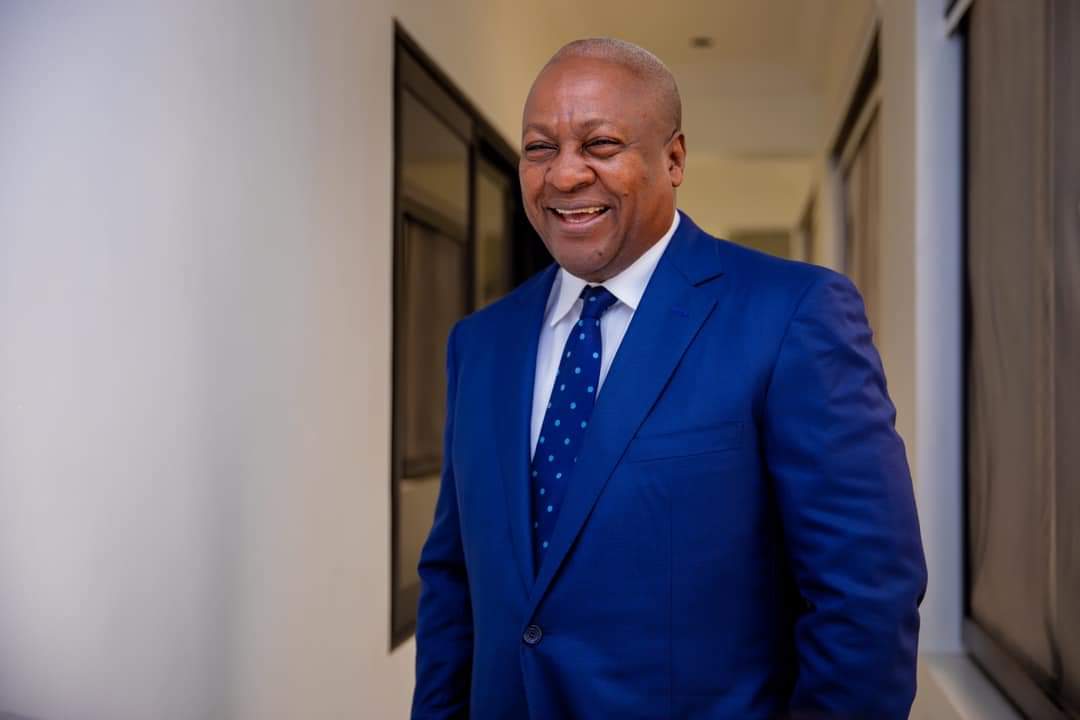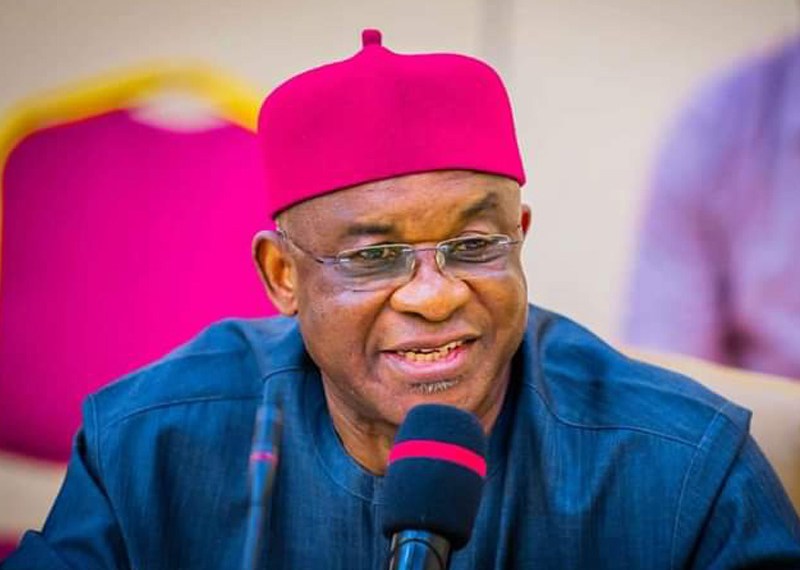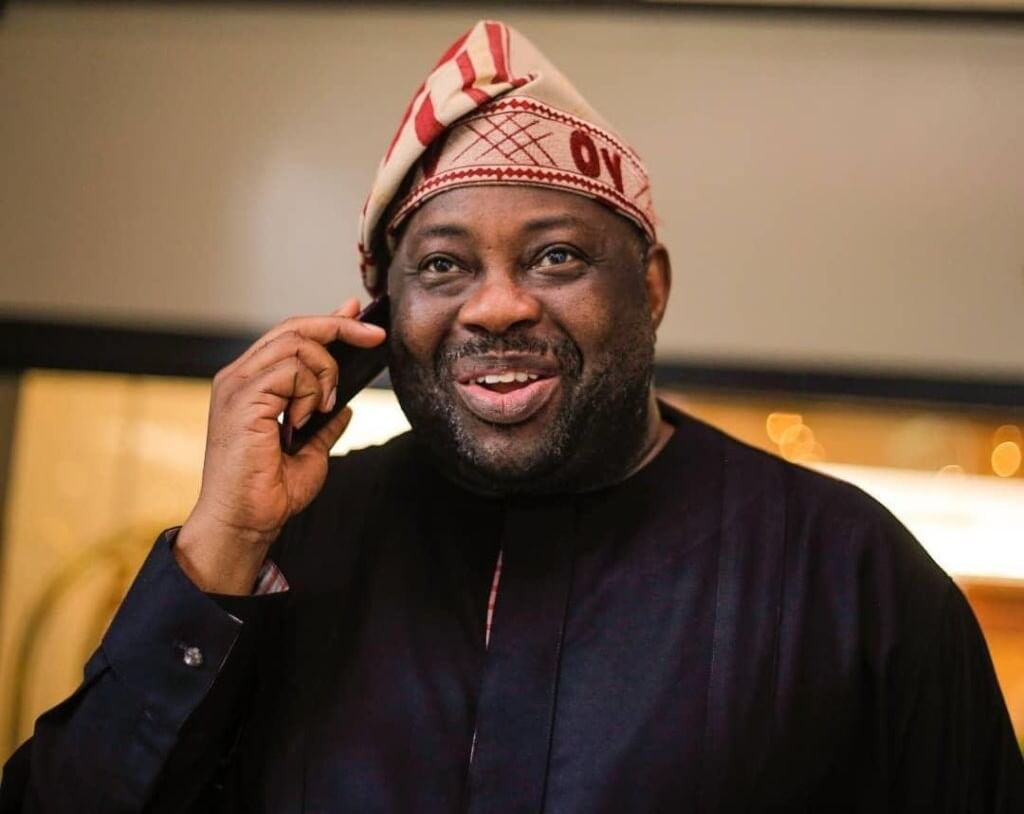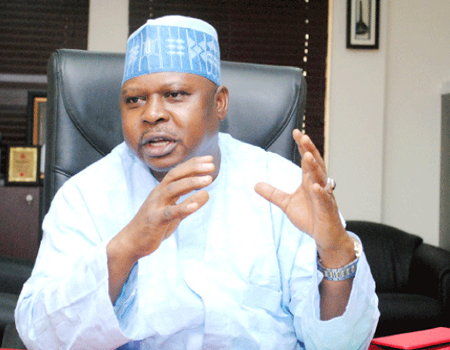Fellow Africans, let me start by expressing my unflinching love for Africa and all Africans, regardless of race, gender or colour. My love of Africa was ignited by my older Brother, Professor Ezekiel Oladele Bolarinwa Ajayi, a Physicist who got his PhD from Stanford but, in the course of his university education there, encountered racism first hand as a student in America. His supervisor at Stanford was William Bradford Shockley Jr. who shared the Nobel Prize in Physics with John Bardeen and Walter Brattain in 1956 for “their researches on semiconductors and their discovery of the transistor effect.” My story today is not really about the scientific adventures of my dear Brother, from the same womb, and his eccentric Professor, it is about the politics of race and hate in the classroom and the reason why I embrace all things Africa and African unapologetically. That is not to say, that I too am racist, but merely to emphasise that I cannot close my eyes to where I come from simply on the altar of trying to be politically correct.
Professor Shockley was unapologetically racist. He wasted precious time trying to prove how “the major causes of the American Negro’s intellectual and social deficits are hereditary and racially genetic in origin and, thus, not remediable to any major degree by practical improvements in the environment…” You can then imagine how gobsmacked and shocked Shockley must have been to come in contact with not just a Blackman in his class, but one from a village called Gbongan, in today’s Osun State. Shockley seriously believed in the theory that Blacks should be sterilised before coming in touch with Whites, a terrible prejudice that totally radicalised my brilliant brother who went all out to demonstrate to Shockley that though he had travelled long distances to arrive in California and across oceans, he was as phenomenal, prodigiously cerebral and, ultimately, as decent as any White man. In effect, my Brother, Professor Ajayi, was not only a first class physicist, he also became a courted academic in his field, thereby shocking Shockley to the very marrow.
My Brother showed interest and participated in the activities of the Pan-Africanist Movement. He even attended one of the Pan-African Conferences in Dar es Salaam, as many distinguished leaders of African descent converged in Tanzania. My Brother met the great President Nwalimu Julius Nyerere and came back with so many literatures extolling the virtues of the African race and some books that lamented the unfortunate quagmire Africans have got sucked into. One of his favourite books I inherited without his permission was HOW EUROPE UNDERDEVELOPED AFRICA, by the famous Guyanese historian and author, Walter Anthony Rodney. Rodney was so radical that he got assassinated in 1980. Naturally, I followed up with other radical literatures by compelling authors like Dr Kwame Nkrumah, the first President of the Independent Republic of Ghana. I instantly fell in love with two of his popular books, Consciencism and Africa Must Unite. I read Frantz Fanon, the French West Indian philosopher and psychiatrist, who wrote the seminal work, The Wretched of the Earth.
Thus, my romanticism of Africa started in earnest. Of course, my Brother had arrived in America in the middle of the civil rights movements and agitation for racial equality. It was impossible not to read and know about the amazing contributions of the American Baptist Minister, Martin Luther King Jr. who was assassinated at the unripe age of 39, on April 4, 1968, at the Lorraine Motel, Memphis, Tennessee, USA. I read about the American Muslim Minister and human rights activist, Malcolm X, who had been assassinated earlier on February 21, 1965, also at the young age of 39, in Manhattan, New York. I, like many of my contemporaries, was fired up by these iconic iconoclasts. I bought and devoured the African Writers Series, published by Heinemann Books as a secondary school student and this was the genesis of my interest and love for literature, particularly African Literature, and the background for my Masters Degree in Literature in English.
My first knowledge of Africa, its history and the peoples, came from reading authors from the North and to the South of Africa. Egypt’s Naguib Mahfouz, Kenya’s Ngugi wa Thiong’o and Meja Mwangi, Cameroon’s Mongo Beti, Ghana’s Ayi Kwei Armah and Kofi Awoonor, Nigeria’s Chinua Achebe, Wole Soyinka, Elechi Amadi, T. M. Aluko, John Munonye, Kole Omotoso, and others, Senegal’s Sembene Ousmane, South Africa’s Alex La Guma, Zambia’s Kenneth Kaunda, Cameroon’s Mongo Beti, Ferdinand Oyono, Mbella Sonne Dipoko and others, Somalia’s Nuruddin Farah, and so many other authors. My original plan was to be a teacher, marry a teacher and live happily thereafter because I was surrounded by teachers – my Brother was a lecturer in the University of Ife, now Obafemi Awolowo University, and my Sister, Feyi Adeniran’s husband was a teacher at my alma mater, St Johns Grammar School, Ile-Ife. But man proposes and God disposes. Unknown to me then, those books actually prepared me for a journey in a different direction, journalism, which I came into by pure accident. Let’s leave that for my forthcoming memoirs.
I have gone through this relatively long preamble to evince how I became fanatical about the celebration of Africa. Once upon a time, it seemed the West saw nothing good about Africa, which Joseph Conrad had described as The Heart of Darkness. Many racists believed, won’t be surprised if they still do, that Africans live on trees and jump from one tree to another like monkeys. Indeed, the monkey chants, gestures and depictions we hear and see on sporting grounds, particularly the football terraces, when our talented African stars showcase their skills tells me that this belief is still rife amongst some ignorant people. Africa was synonymous with wars, famine, deprivation, diseases and all what not. At the beginning of Ovation International magazine in London, in 1996, we took a firm decision, and made a bold commitment, to publishing stories about Africa in a positive manner. 23 years after, the world has come to agree and accept that Africa deserves a standing ovation, against all odds. Many of those who did not understand our mission and trajectory refused to see the good in celebrating ourselves if no one would look our way.
Africans have had their fair shares of greatness and also backwardness. But no race has a monopoly of both. The difference is we have been our own worst enemies. We love to rubbish our own achievement while we celebrate that of others. On our part at Ovation International, we have laboured assiduously to put Africa on the global map where it rightly belongs, and we shall not relent. The best of Africa deserves this. I’m particularly grateful to the Africa Studies Centre at Oxford University for rekindling my interest in academic work some 31 years after finishing my Masters degree at the Obafemi Awolowo University, Ile-Ife. I’m particularly delighted by the privilege of rubbing minds with world scholars. For me, there is no better place to be at this time than Oxford. I intend to make the best use of the opportunity.
Oxford made it possible for me to start the first quarter of this year on a powerful note. The second quarter is even looking more exciting. On May 10, 2019, we shall have the honour of the distinguished presence of the former President of Ghana, Dr. John Dramani Mahama, at Oxford. According to a release, “H.E John Mahama, former President of Ghana will give his insightful lecture at Saïd Business School in collaboration with the African Studies Centre and the Oxford Africa Business Alliance. President John Mahama was the President of Ghana from 2012 to 2017. Previously, he served as Vice President between 2009 and 2012. He is a communication expert, historian and writer and the presidential candidate of Ghana’s National Democratic Congress (NDC) for the 2020 presidential election. He is the author of My First Coup d’État and Other True Stories From the Lost Decades of Africa (2012). The lecture will include an audience Q&A moderated by Prof. Wale Adebanwi, Director of the Africa Studies Centre & Rhodes Professor of Race Relations.“
Oxford University is doing so much work on Africa at the moment and I’m grateful for the opportunity to share in their huge experience and vast libraries of research materials. Africa seems to be the last virgin continent. With the right kind of leadership, Africa and many more Africans would ultimately occupy their rightful position in the pantheon of greats. I’m happy that our modest efforts at celebrating Africa has not gone unnoticed. There are times you feel no one notices your hard work or shares in your vision. You almost get enslaved by frustration and capitulation. But when I feel this way, I remember, where I have come from, and how far the journey has taken me, and I refocus and re-energise myself.
The biggest task facing Africa today is how to rebrand itself from a squalid continent to a prosperous one. This is why we need to engage in serious public relations to clean up the image of Africa as a gabbage continent. One country that has changed its savage narrative to a positive one of unity, growth and progress is Rwanda. Rwanda should be a case study for Nigeria and Nigerians in particular, and the rest of Africa in general. Rwanda has benefited immensely from what I consider to be the power of positive thinking. The leadership of Rwanda has demonstrated the limitless capacity for human endeavours and achievements.
Please, let me now share my good news. On May 14, 2019, by the grace of God, I will be conferred with the honorary Fellowship of the African Public Relations Association (APRA), the only recipient from Nigeria. President Paul Kagame of Rwanda will be decorated as a Patron of APRA. Other recipients of honorary Fellowships include former Ghanaian President, Dr John Dramani Mahama, and Ambassador Kwesi Quartey, Deputy Chairperson, African Union Commission (AUC).
In a letter signed by the President of APRA, Mr Yomi Badejo-Okusanya, he wrote: “Concisely, APRA sells ‘Positive Africa’ and in line with our key intervention areas, recognizes individuals for their efforts and accomplishments in promoting the continent. Considering your dedication to Africa, and role as an inspiration to our profession, the Executive Council of APRA is proud to confer you with the Honorary Fellowship of its association, with all rights and privileges pertaining to.
“You will be decorated at the opening ceremony of our 31st Annual Conference tagged ‘Africa and Storytelling: Changing the Narrative”… Other expected honorees will be the President of the Republic of Rwanda, HE Paul Kagame, who will be decorated as a Patron in line with his office, the Deputy Chairperson, African Union Commission, Ambassador Kwesi Thomas Quartey, and former President, Republic of Ghana, Mr John Dramani Mahama as Honorary Fellows respectively…”
My sincere gratitude to all members of the APRA, and in particular, the Executive, for finding me worthy of this amazing honour. This acknowledgement of my modest contribution to the development of a positive African ethos, greatly humbles me. It makes me ever more determined not to relent in my efforts to champion what is best and noble about Africa and Africans, and to refuse to follow the pervasive trend of succumbing to the prejudiced notion that nothing good can come out of Africa. This award will definitely inspire me to do more for Africa.
Once more I also use this opportunity to appreciate all my fans and well-wishers who have also made this award possible. I believe that your demonstration of affection for me has helped the APRA and its Executive, in no small measure, in coming to the conclusion that I deserve this much cherished award.
Thank you APRA! God bless you, God bless Africa.

 Boss Picks5 days ago
Boss Picks5 days ago
 Opinion5 days ago
Opinion5 days ago
 Headline4 days ago
Headline4 days ago
 Headline5 days ago
Headline5 days ago
 Featured4 days ago
Featured4 days ago
 Featured4 days ago
Featured4 days ago
 National4 days ago
National4 days ago
 Featured2 days ago
Featured2 days ago














